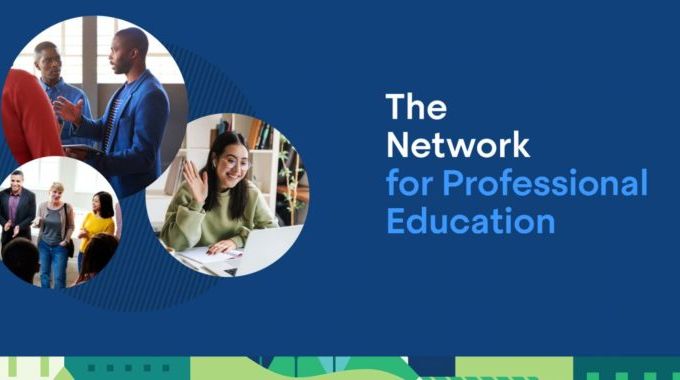Adobe Creative Cloud As A Learning Resource

It is no secret that digital literacy is important in today’s classrooms. From presentations to video projects, faculty are learning how to utilize new programs in their curriculum in an effective way to help students be expert communicators when they leave campus and enter the real world. Whether it is cropping an image for a PowerPoint presentation, or filming a short introduction video, the wide array of Adobe platforms can help faculty turn their ideas into a reality in a dynamic and engaging way. At Boston University, the Adobe Creative Cloud has become the leader in this creative arena.
About Adobe Creative Cloud
The Adobe Creative Cloud is revolutionizing the use of technology in the classroom. With easy-to-learn tools within each platform, and a multitude of supporting resources and workshops, faculty are able to use state-of-the-art technologies to express their ideas and share their knowledge through multimedia tools.
There are several Adobe platforms—each designed to assist with all types of projects. Adobe Photoshop is perfect for sizing, resizing, and exporting images, and allows for retouching photos as well. For videos, there’s Adobe Premiere, the leading multimedia software for film and TV. Professors can easily learn how to create and edit video, audio, and photo sequences for the classroom with this platform. Need help with graphics? Take a workshop with Adobe Illustrator, a design program used by advertisers, filmmakers, and now, teachers. And if you want to use audio and video together, consider Adobe Spark, which allows users to export and share their own content. Together, Boston University and Adobe are transforming how we use technology in an innovative and efficient way.
Creative Campus
Boston University is an Adobe Creative Campus, which means that all undergraduate students have access to university-sponsored licenses to these applications, and BU instructors of record for undergraduate courses are eligible to receive a university-sponsored license. For up-to-date eligibility requirements and instructions, reach out via AskEdTech@bu.edu.
Check out this overview of Adobe Photoshop, Premiere Pro, Illustrator and Spark applications, and learn more about upcoming Adobe workshops.
This is a hands-on introductory workshop designed for the first time and beginning Adobe Photoshop users. The 2-hour training covers the essentials topics, tools and techniques you need to know to get up to speed with Adobe Photoshop.
Topics discussed will include:
- The basics of the Photoshop interface
- How to setup a project and import images
- Working with Camera Raw
- Making Color adjustments and retouching images
- Working with layers and compositions
- Basic and complex selections
- Removing Unwanted Objects
- Working with Smart filters
- Blending two images together using Layer Masks
- Working with text, shapes and colors
- Resizing, saving and exporting images
Takeaway: By the end of the workshop, participants will learn how to create engaging and appealing designs and feel comfortable editing images, photos and text in Adobe Photoshop.
Adobe Premiere
This workshop is a hands-on introduction to video editing using Adobe Premiere. Premiere is the leading multimedia software for film, TV, commercials and the web. The 2-hour training gives attendees a step-by-step guide to working with audio-visual media in the Premiere interface. This “head-to-tails” workshop covers the following topics:
- The basics of the Premiere interface
- How to setup a project
- How to import media
- How to create and edit video, audio and photo sequences
- Working with titles and transition effects
- Adjusting Audio
- Exporting a sequence
Takeaway: Upon completing this workshop, attendees will have a full grasp of the video editing workflow and be able to craft their own mini masterpieces.
Adobe Illustrator
This workshop covers the variety of tools available to create graphics in Adobe Illustrator. Illustrator is a vector-based design program used by everyone from advertisers to filmmakers to independent artists. The vector format allows designers to scale their artwork to any size without loss of resolution or clarity. The workshop will teach you to use a number of the program’s basic tools in order to open the gateway to more complex projects.
Topics discussed include:
- The basics of the Illustrator interface
- How to setup a project
- How to import media
- Working with scalable artboards and vector layers
- Using the drawing tools and creating editable paths
- Working with color
- Designing and implementing text
- Exporting images and artboards
Takeaway: Once students understand the basics of the program, they will be able to take their new skills and create a wide variety of eye-popping artwork.
Adobe Spark
Learn how to combine text and images into compelling presentations with Adobe Spark page, and quickly create and share your social media posts with Adobe Spark Post.
Topics discussed will include:
- Create posts and web pages from scratch
- Add and edit photos, text, and graphics
- Add effects, transitions, and audio
- Use templates and themes to quickly change your design
- Export and share your content
Adobe Spark is free and works in your web browser or on your iOS device but with subscription of an Adobe Creative Cloud plan, you get full access to premium templates, Adobe Images and Adobe Fonts.
Takeaway: By the end of the training, participants will have gained the skills to use Adobe Spark Post and build an Adobe Spark page effectively, and will be able to create social media posts and a content-rich webpage within Adobe Spark.
To get a Boston University sponsored Adobe license or for eligibility determination, or to schedule an appointment with an Educational Technologist, email askedtech@bu.edu.
About EdTech: Boston University’s Educational Technologists provide faculty and academic staff tools to enhance teaching while leveraging available and emerging learning-centered technologies.


